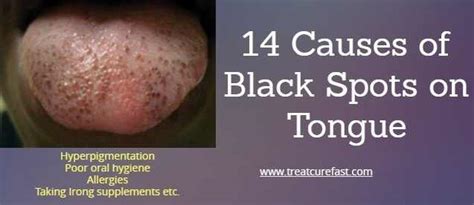Tooth Sensitivity: Ease Discomfort Now
Tooth sensitivity is a common dental issue that affects millions of people worldwide, causing sharp pains or discomfort when consuming hot or cold foods and drinks, or even when breathing in cold air. This condition occurs when the dentin, the layer of tissue beneath the enamel, becomes exposed, allowing the nerves within the tooth to be stimulated. Understanding the causes, symptoms, and treatment options for tooth sensitivity is crucial for easing discomfort and preventing further complications.
Causes of Tooth Sensitivity
Several factors can contribute to tooth sensitivity. One of the primary causes is receding gums, which can expose the dentin. Other causes include:
- Tooth Decay or Cracks: When teeth are decayed or cracked, the dentin can become exposed, leading to sensitivity.
- Gum Disease: Inflamed gums can cause them to pull back from the teeth, exposing the dentin.
- Tooth Whitening Products: Overuse or misuse of tooth whitening products can lead to sensitivity due to the chemicals penetrating the tooth enamel.
- Mouthwash Use: Some mouthwashes contain acids that can wear away the dentin over time if used excessively.
- Brushing Too Hard: Using a hard-bristled toothbrush or brushing too aggressively can wear away the enamel and expose the dentin.
- Diet: Frequent consumption of acidic foods and drinks can erode the enamel, leading to sensitivity.
Symptoms of Tooth Sensitivity
The symptoms of tooth sensitivity can vary from person to person but typically include:
- Sharp Pain: A sudden, sharp pain when consuming hot or cold foods and drinks.
- Discomfort: Lingering discomfort after the initial pain has subsided.
- Pain from Pressure: Pain when biting or chewing due to pressure on the teeth.
Treatment and Prevention
Fortunately, there are several ways to treat and prevent tooth sensitivity. These include:
Desensitizing Toothpaste
Using desensitizing toothpaste can help block the dentin tubules, reducing the pain associated with tooth sensitivity. These toothpastes typically contain ingredients such as potassium nitrate or strontium chloride.
Fluoride Gel
Applying fluoride gel to the sensitive teeth can help strengthen the enamel, reducing sensitivity. This is often done in a dental office but can also be applied at home with a prescription from a dentist.
Root Canal
In severe cases where the sensitivity is due to a deep infection or decay, a root canal may be necessary to remove the infected pulp and prevent further complications.
Gum Graft
For gum recession, a gum graft can be performed to cover the exposed roots and reduce sensitivity.
Changing Brushing Habits
Switching to a soft-bristled toothbrush and adopting a gentle brushing technique can help prevent further enamel wear.
Dietary Changes
Limiting or avoiding acidic foods and drinks can prevent erosion of the enamel.
Expert Insights
According to dental experts, prevention is key when it comes to tooth sensitivity. Regular dental check-ups can help identify issues early on, and adopting good oral hygiene practices, such as brushing gently and using a fluoride mouthwash, can significantly reduce the risk of sensitivity.
Scenario-Based Example
For instance, Sarah, a coffee lover, noticed that every time she took a sip of her hot morning coffee, she felt a sharp pain in one of her molars. Upon visiting her dentist, it was discovered that she had a small crack in the tooth, which was causing the sensitivity. The dentist recommended a filling to fix the crack and advised Sarah to use a desensitizing toothpaste to alleviate the discomfort.
Natural Remedies and Home Care
While professional treatment is often necessary, there are some natural remedies and home care practices that can help alleviate tooth sensitivity:
- Salt Water Rinse: Rinsing with warm salt water several times a day can help reduce inflammation and ease pain.
- Cloves: Cloves have anti-inflammatory properties and can be used to alleviate tooth pain. A cotton ball soaked in clove oil can be applied to the sensitive tooth.
- Good Oral Hygiene: Maintaining good oral hygiene practices, including regular brushing and flossing, can help prevent further irritation.
Conclusion
Tooth sensitivity, while uncomfortable, is a treatable condition. By understanding its causes and symptoms, individuals can take proactive steps towards prevention and seek appropriate treatment when necessary. Whether through professional dental care or home remedies, easing tooth sensitivity is possible, allowing for a return to enjoying everyday activities without discomfort.
What are the most common causes of tooth sensitivity?
+The most common causes of tooth sensitivity include receding gums, tooth decay or cracks, gum disease, overuse of tooth whitening products, using a hard-bristled toothbrush, and frequent consumption of acidic foods and drinks.
How can I prevent tooth sensitivity?
+To prevent tooth sensitivity, practice good oral hygiene, including gentle brushing with a soft-bristled toothbrush, limit acidic foods and drinks, and avoid overusing tooth whitening products. Regular dental check-ups can also help identify and address issues before they cause sensitivity.
Are there any home remedies for tooth sensitivity?
+Yes, there are several home remedies that can help alleviate tooth sensitivity, including rinsing with warm salt water, using desensitizing toothpaste, and applying clove oil to the sensitive area.

